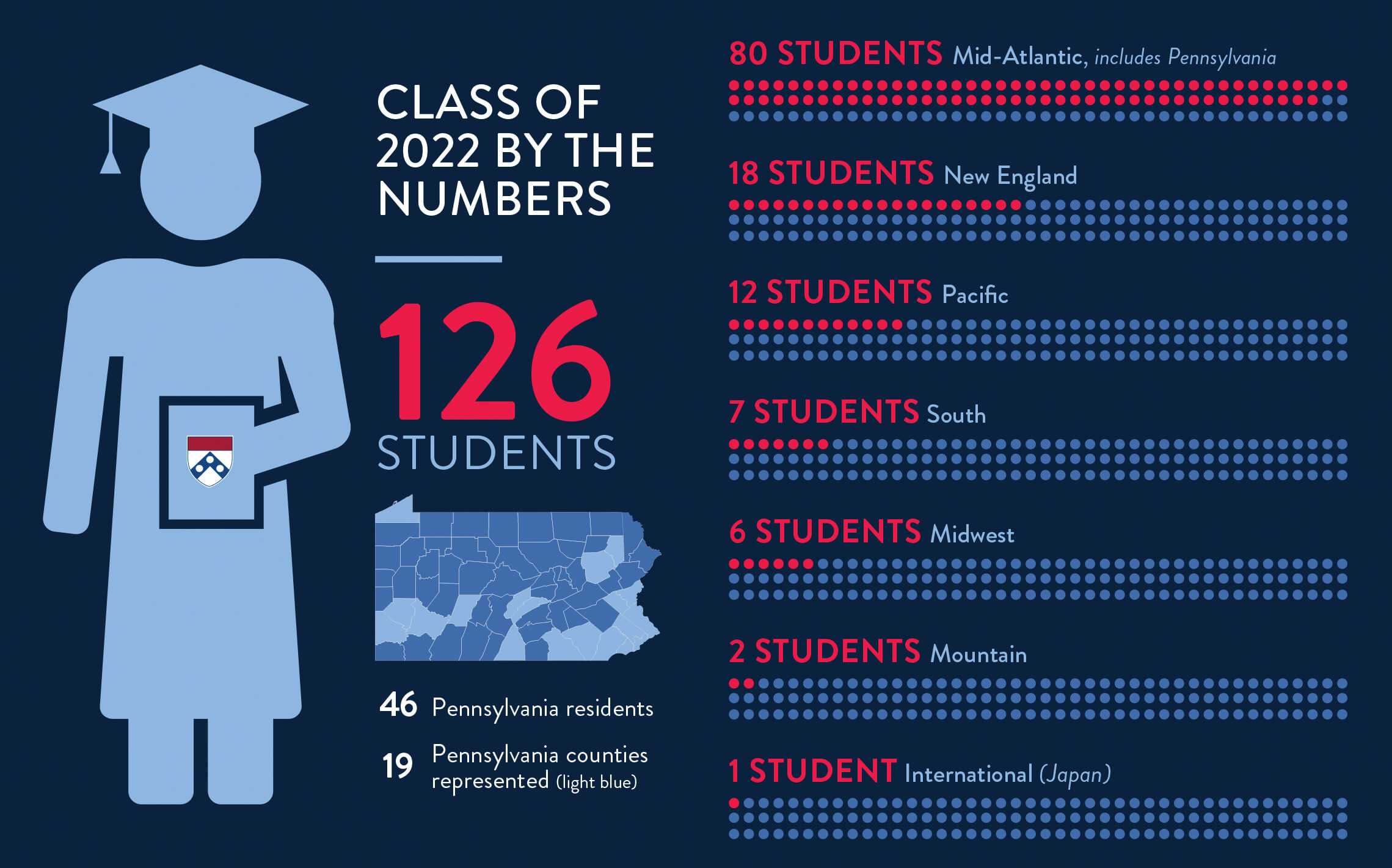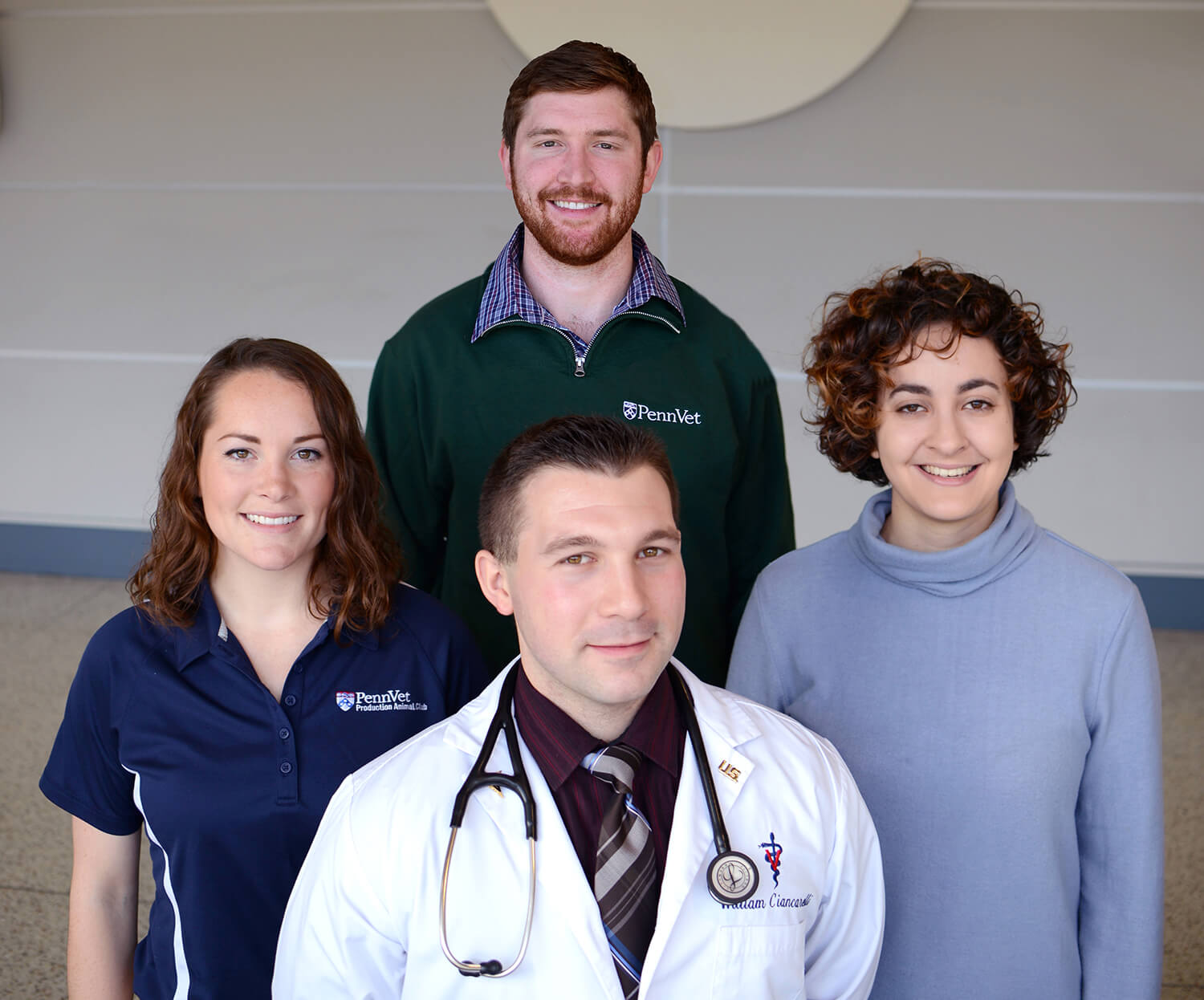 Clockwise from left, Emily Griswold, V'20, Corbin Harris, V'21, Carolina Panisello-Manterola, V'21, and William (Bill) Ciancarelli, V'19.
Clockwise from left, Emily Griswold, V'20, Corbin Harris, V'21, Carolina Panisello-Manterola, V'21, and William (Bill) Ciancarelli, V'19.
Penn Vet students think broadly about the world and how they can influence it for the better. Their talent, creativity, and desire to serve animals and people lead them into careers that expand the traditional boundaries of veterinary medicine.
So, who are these veterinarians-to-be? We hear from four—second- to fourth-year students—who tell us their stories in their own words.
What early life experiences made you decide to study veterinary medicine?
BILL: I’ve always been drawn to service. In high school, I built a bird sanctuary at a local animal shelter for my Eagle Scout project. I also volunteered with the Guide Dog Foundation for the Blind and America’s VetDogs, where I was inspired to become a veterinarian after assisting with wellness visits.
CAROLINA: I spent summers with my grandparents in Spain. My grandmother, who knew I loved animals but wasn’t allowed a pet, always bought me a chick or little duckling. I’d raise it over the summer. At the end of the summer, it would go to live on my uncle’s farm. That time in Spain influenced me a lot.
When I was five years old, my parents suggested I could be a veterinarian and care for animals. I didn’t know what that meant, but to my five-year-old brain it sounded fantastic to work with animals for the rest of my life. Now, here I am!
CORBIN: When I was in high school, I worked after school cleaning cages and assisting technicians at a local small animal practice, even though at the time I was pre-med. The owner became a mentor to me and influenced me toward veterinary medicine.
After college, I consulted for various companies, helping human medical devices get FDA clearance. One company’s CEO was a veterinarian. He’d practiced animal medicine and was now working with animals in a different way. It was at that point I saw the applicability of veterinarians and the veterinary field. In fact, my application essay for Penn Vet was about the relevance of our education and power of the degree.
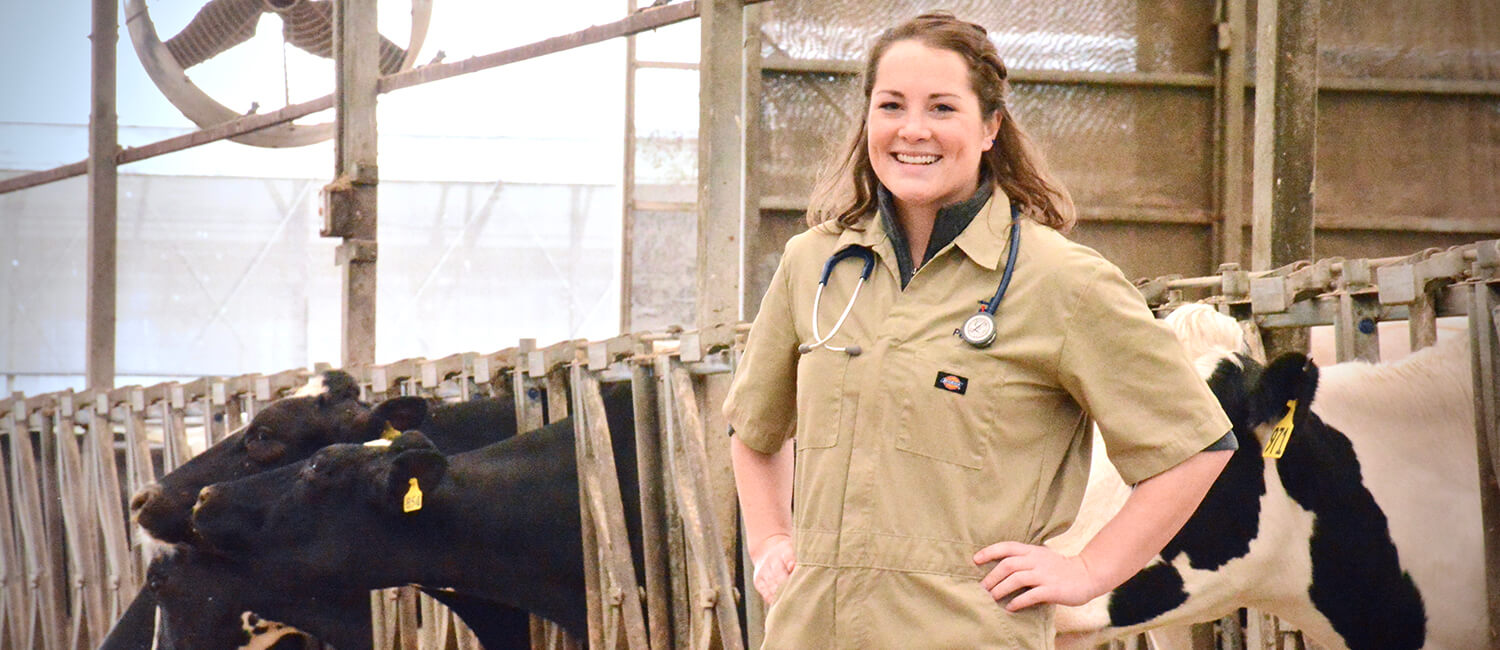 Emily plans to go into rural practice, working with bovine farmers.
Emily plans to go into rural practice, working with bovine farmers.
EMILY: My dad, David Griswold, V’79, is a Penn Vet alumnus and large animal veterinarian in Perry County, Pennsylvania, so I’ve always been around the profession.
I was eight when I started riding horses. I wanted my own horse and joined 4H to raise goats and prove that I could care for animals. When I got the goats I was like, “Oh, goats are even better than horses.” Then, I got sheep, and I was like, “Oh, sheep are even better than goats.” I never did get a horse, but I got very involved with 4H, which tuned me into veterinary medicine.
I always liked science and animals, and got involved with FFA [Future Farmers of America] in high school. In college, I did an internship at a practice in Montana, and decided “this is it.” After graduation, I worked for that same practice for a year and did mostly cow/calf ranch work. For me, my love of veterinary medicine all centers around helping people. It’s awesome that I can help people by working with animals.
Emily, we must ask: Does your dad ever compare your Penn Vet experience to his?
EMILY: Definitely! A lot of the difference is how my generation learns. Back then, everything was written on the chalkboard, and students had to write everything down. It seems that sort of slowed down the pace of learning a bit—and of course, the rate of disease discovery wasn’t as fast. Today, there’s so much technology that allows us to learn at our own pace. The volume of what we learn is greater and the rate we learn is quicker. The School is much more focused on getting us ready for the clinical setting and working in the world—teaching us how to communicate, and giving us more lab and hands-on time.
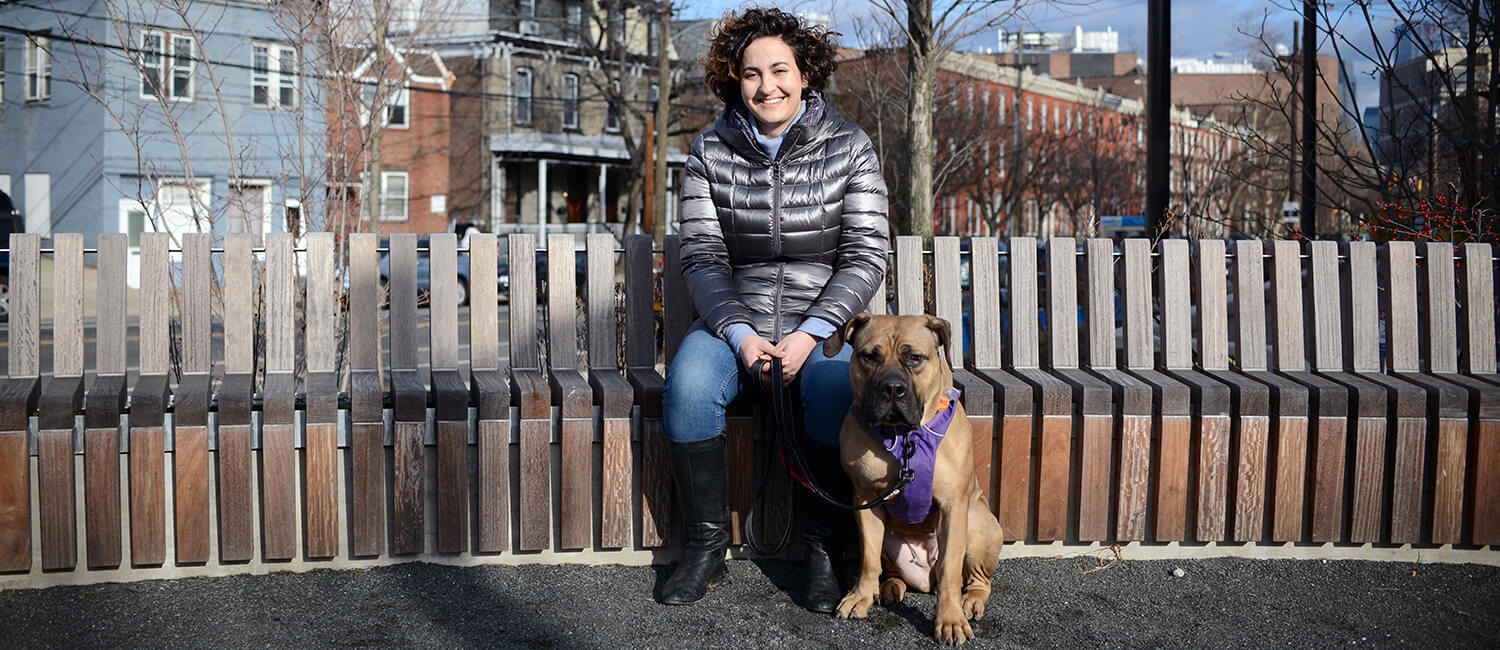 Carolina is interested in community work.
Carolina is interested in community work.
Why did you choose Penn Vet?
CAROLINA: I grew up around different cultures, and that’s been a strong factor in my identity. I really value diversity. Since undergrad, I’ve been involved with different diversity and inclusion work.
As a result, I’m very interested in community work—bringing veterinary medicine to new communities and new communities to veterinary medicine. I really love Penn Vet’s urban setting and the huge array of opportunities in a city that is very culturally, racially, and economically diverse. I will admit, I like that Philadelphia’s climate is a little warmer than Ithaca.
BILL: Although I am a New Yorker at heart, Philadelphia brings a caseload unsurpassed by other veterinary institutions. Working with various socioeconomic backgrounds enables us to learn to empathize with our clients’ constrictions but also flexibly practice medicine when necessary.
I also knew Penn Vet from college. During my junior year at the University of Delaware, I was lucky to meet with Mac Keiter, our previous Associate Dean of Admissions, who suggested I volunteered with New Bolton Center’s nursing department. Working with large animal patients and New Bolton Center students and clinicians showed me the strength of Penn Vet’s program.
CORBIN: Penn Vet was a no-brainer for me because of the resources it offers students. I knew that no matter how I applied the degree, the School’s proximity to other top-notch professional schools facilitated any interdisciplinary pursuits I may follow. Typically, many of these opportunities aren’t offered at other veterinary schools because so many are in rural locations. Throw that on top of Penn Vet’s countless examples of great clinical veterinarians, and it sealed the deal as my top choice.
EMILY: As my dad’s alma mater and the only in-state veterinary school, Penn Vet was on my radar for a long time. But I wasn’t fully aware of all the opportunities here until my interview. Penn Vet was the last school where I interviewed, so I had a feel for the other places I was considering. My interview day began with a quick tour of the Philadelphia campus followed by a full day at New Bolton Center, where we watched students participate in clinical reproduction labs and chatted with clinicians. I was blown away by nearly everything I experienced that day, from the facilities to my fellow interviewees to our student guide.
I was particularly drawn to New Bolton Center’s Marshak Dairy, swine unit, Hoffman Center for Reproduction, and the incredibly high caseload seen at the hospital and by field services.
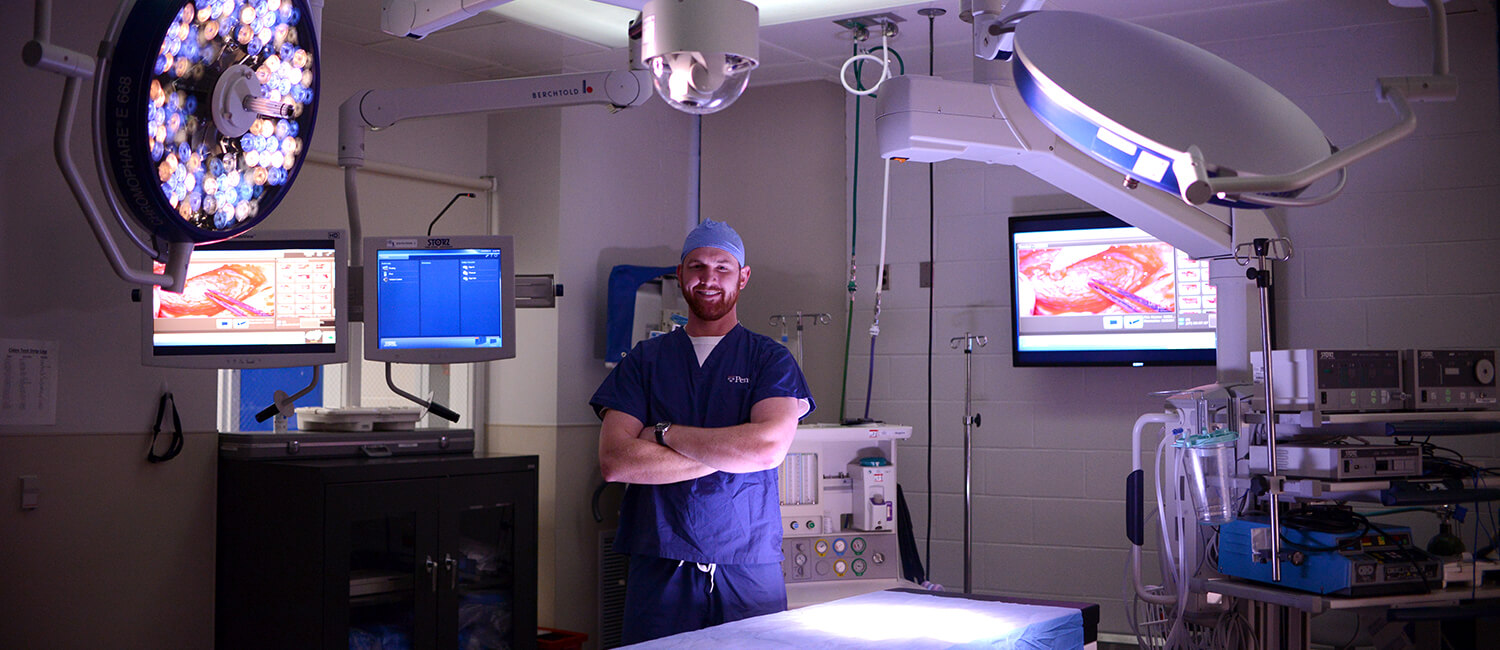 Corbin may be interested in obtaining an MBA in the future.
Corbin may be interested in obtaining an MBA in the future.
What are your career plans?
CORBIN: When I sat down for my Penn Vet interview, I was asked what I planned to do with my degree. I was honest and said, “I genuinely have no idea. I have rough interests but I can’t tell you if I’ll do a residency, general practice, or research, because getting into Penn Vet opens many avenues.” That was my mindset walking in here. To this day, I am still excited by all the options.
There are some joint degrees that I may look into—I’m considering starting a medical device company for animals, so I might be interested in getting an MBA down the road.
CAROLINA: Like Corbin, I don’t know exactly. I think I’m small animal, but we learn so much all the time that it opens different directions. There are so many things we can do with this degree. So, in terms of specialty, that’s something that I’m still not sure about.
What I am very sure about is the community aspect of what we do. Like Emily, I love working with animals and people.
When I started in undergrad, I thought I’d eventually go to vet school, get my degree, and open my own practice. I minored in business to prepare. Then I took an education minor, which sent me in a different direction. I began to focus a lot on social inequities and different societal issues. My business minor helped me see entrepreneurship as a way to help people and find creative solutions to issues.
EMILY: I want to go into rural practice, where I can do mostly bovine work and help farmers succeed in their businesses. Before I started vet school, I wasn’t really open to small animal medicine. Since being here, I’ve realized the communities I’d work with need care for their agricultural animals, but also for their dogs and cats and horses. I’m thinking now about going into a mixed practice setting with a focus on livestock.
BILL: I’ll be a military veterinarian for every branch of the Department of Defense (DOD), providing veterinary care to our military working dogs and pets of service members. Beginning in July of this year I will be stationed at Fort Belvoir, Virginia, where I’ll be participating in my First Year Veterinary Graduate Education (FYGVE), which is the civilian equivalent of an internship with a food mission attached.
In this role, I’ll provide worldwide food safety by auditing commercial food, bottled water, and ice production facilities wanting to sell products to the DOD. I’ll ensure facilities are selling products that are safe for our soldiers and their families. In the past, I’ve helped Veterinary Corps officers inspect Navy missile cruiser refrigerators docked in Pearl Harbor and audit an ice cream plant.
When I found out that you could be a veterinarian in the U.S. Army, I knew I’d found my calling. I’m not sure if I want to be a career soldier, but I certainly want to do my part as my grandfather did in World War II. I believe serving this country is the highest of honors, and it’s a privilege to perform my duties to protect the United States as a veterinarian.
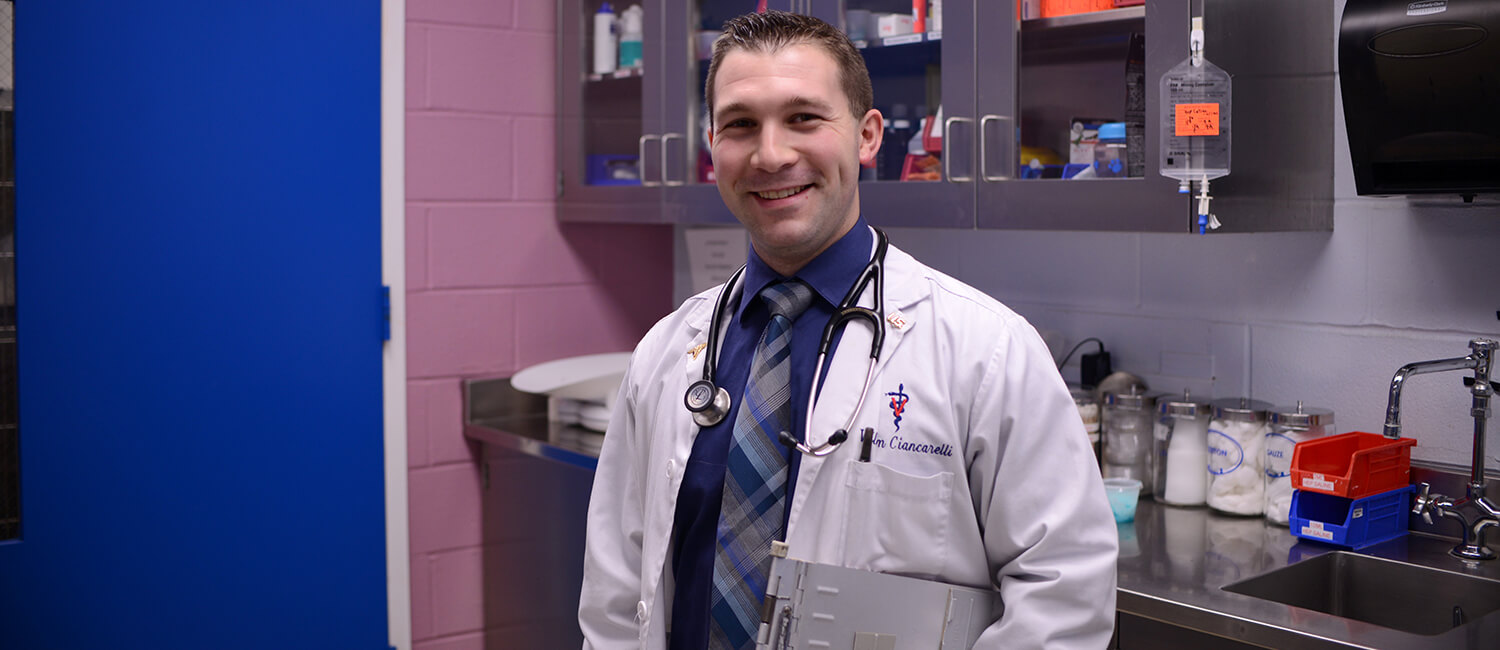 After graduation, Bill will be a veterinarian for the Department of Defense.
After graduation, Bill will be a veterinarian for the Department of Defense.
How is Penn Vet preparing you to be a veterinarian?
CORBIN: The School’s faculty are always available to help me figure out what I will do, and I’m enjoying the many opportunities to learn from other Penn schools. I feel like a kid in a candy store. For example, last summer I participated in the Penn Vet and Wharton Penn Executive Veterinary Leadership Program, with professors from both schools. I talked at length with my histology professor and current Ryan clinicians, and we had an exercise where we built a company. In what world would you get that experience with your professors?
BILL: Faculty and residents are very caring and concerned that we learn clinical and practical life skills. They also really push us to get out and learn in other geographies and communities. In 2016, I spent three weeks in Italy and France learning about veterinary medicine, animal welfare, and food safety public policy in Europe. I’ve also performed spay and neuter procedures for the Humane Alliance in Asheville, North Carolina, as a part of a two-week externship.
I encourage anyone with these opportunities available to them to take advantage of them to their fullest. You never know how it will benefit your development in becoming a veterinarian, both clinically and personally.
EMILY: I’ve found a niche in food animal medicine, but also can explore other interests. The School’s faculty, staff, and students are so open to ideas and able to direct us in further developing these ideas.
CAROLINA: Penn Vet really promotes entrepreneurial thinking. With the access we have to so many resources in Philadelphia and at the University, the world really is open to us.
